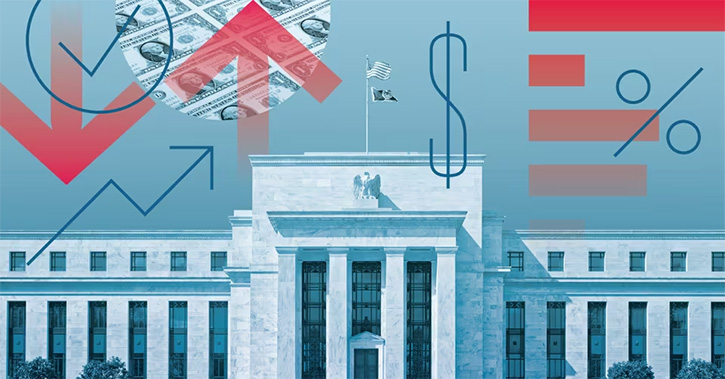Jason Stipp: I'm Jason Stipp for Morningstar. After a couple of brutal days in the market this week, we're checking in with Morningstar markets editor Jeremy Glaser for his take on the situation.
Jeremy, thanks for joining me.
Jeremy Glaser: You are welcome, Jason.
Stipp: We saw a big sell-off on Thursday followed by another sell-off on Friday, what's driving all of this activity as investors are heading toward the exits?
Glaser: Well, it's virtually impossible to ever pinpoint one exact cause for any given day's movement in the stock market. But I think, overall, investors are concerned about the global growth picture and, in particular, are concerned about China. Going into this year and throughout this year, I think there was some hope of global growth looking a little bit better. Europe really seemed to be turning the corner, the United States continued to chug along, and China--although slowing--would be able to manage that slowdown and that they weren't going to have that hard landing, as people used to talk about.
Over the last couple of weeks and, in particular, into this week, I think there are signs that maybe that thesis just isn't going to hold--particularly when it comes to China. We've had a lot of bad news and unusual news out of China. With the devaluation of their currency, they said they are going to let the market decide and then at the last minute intervened because the market was deciding too much. Also, the intervention in the Chinese stock market and the weak manufacturing data, I think, have really hurt the market's confidence in China's ability to manage the economy and to manage this transition from a very investment-led economy to more of a consumer-driven one.
I think that's something that's starting to concern investors as they think about the impact on Europe, which has more direct trade with China. What's the impact on the United States? How does it impact global currencies? How does it impact the global monetary market and commodities? How does it impact what's happening with emerging markets? As people revaluate that, you are starting to see some of that shake out through the global stock market sell-off.
Stipp: We also had Fed minutes recently. The market had been very focused on the Fed, and now they're focused on the Fed and China. Are Fed concerns possibly contributing to the volatility?
Glaser: I think they have to be. I think the Fed is just under such intense focus now as we approach the first meeting where it's even possible that they'll really consider raising rates. They are going to continue to be focused on that. I would say, maybe early in the week, that September seemed like it was priced in as the likely candidate of when it was going to raise rates. That seems to have become less and less likely as the week has gone on--partially because the Fed minutes mentioned some international problems as a reason that you might want to wait. We are seeing those in spades over the last couple of days, so maybe that causes the Fed to step back and decide it's not quite time yet. I think some of the volatility is also coming from that repricing of when the Fed is going to increase rates. As we have said before, I think for the average investor they shouldn't care too much about it. But definitely, in the short term, it can create some waves, and we're seeing that right now.
Stipp: If people think the Fed is going to raise rates later, though, would that be a positive for the market or not?
Glaser: It's been interesting that this is maybe not moving in the exact direction that you would expect. Traditionally, you might think that if the Fed were to raise rates, that would potentially slow the economy down, and maybe that'd be bad for the stock market over the long term. But I think investors are also saying that if they don't raise rates at this point, maybe that's a sign that the economy is actually weaker than we originally thought--that it can't support this rate increase. That's not a good thing potentially for growth either and maybe speaks to some broader problems that could pop up across different companies' earnings. So, I think you can see that no matter what the Fed does, the market could find something to be worried about. But these are really unconventional monetary policies that we've had put into place, so the exit from it is going to be unconventional, too. We don't really know how the market is going to react and, again, I think that's why we are seeing some volatility, as people try to figure out exactly what it means to move off of this floor of zero that we have been at for so long.
Stipp: Are any areas of the market getting hammered worse than others?
Glaser: Energy is getting hit the hardest. I think a lot of that is because oil prices continue to fall--we can add that in as another factor that's driving some of the volatility. That supply/demand imbalance that sent oil lower earlier is still very much in play, and we are hitting new six-year lows here. Oil is below $40 a barrel in the U.S. because we have a lot of supply and there's a concern that demand is going to be below that. As those prices come down, the energy shares are coming down with it.
Stipp: We can also say Morningstar has a fair value for the market as a whole in which we roll up our underlying company fair value estimates. What is the overall market valuation looking like?
Glaser: According to our equity analysts--and remember this is only companies that we cover, so that tends to be larger-cap companies and a lot in the U.S. So, it's a snapshot of that portion of the market. The median company there looks about 5% undervalued right now, which is not a dramatic undervaluation by any stretch of the imagination--not nearly as undervalued as the median stock looked like, say, during the summer of 2011 at the height of the eurozone crisis and certainly not anywhere close to what it looked like during the financial crisis. So, we've gone from maybe a little bit overvalued to a little bit undervalued. But more or less, we're right around where we think fair value is.
Stipp: So, if we are not seeing a lot of margin of safety in the market overall, what about individual securities? Can bargain-hunters find more opportunities now than they could before we started seeing some of this sell-off?
Glaser: There is more now, if not a ton. Before the sell-off, we could count the number of 5-star stocks on one hand; now we're up to 32, which is not a huge number. Now, a lot of those are in the energy and basic-materials sectors. That's been hit the hardest--we think, in some cases, unfairly. One company that we really like here is Exxon Mobil (XOM). It's a wide-moat company, and we think it has a low uncertainty rating that we are pretty certain about. What its future path looks like, we think that it's trading at a really attractive discount right now at 5 stars. But before you maybe load up on more energy shares, I think it's important to look at your portfolio and make sure that your total energy exposure is something that you are comfortable with. Maybe do a portfolio X-ray to see what kind of energy exposure you have in any mutual funds you own. A lot of those risks may be correlated. I think it's important in a portfolio context to really think about what you are buying.
Stipp: Is anything outside of energy looking attractive?
Glaser: A few things. Gap (GPS)--believe it or not--the clothing retailer is in 5-star territory right now. There is a sense in the market that the turnaround they are trying to accomplish is not maybe going quickly enough, but our analyst thinks that it's very much on track and that they are going to see some potential big gains from new inventory systems and from some brand repositionings they are doing. She sees those shares as looking attractive right now. Apollo Global (APO), an alternative asset manager, is a narrow-moat company that we think has a good specialization in illiquid credit instruments--something that we think will serve the company well in the years to come. That is a high-uncertainty name, so we're less certain about the path that one could take. But for maybe investors with more of a risk appetite, that could be another interesting one to look at.
Stipp: A lot of Morningstar commentary has been saying that the conditions are ripe for volatility. We've been saying it for a little while as market valuations were pretty full or in some cases overvalued. If you had to take out your crystal ball and predict if this volatility is going to continue or not, what does it look like?
Glaser: Well, first off, my crystal ball has been broken for quite some time. It's really hard to say over any short period of time exactly what the market's going to do. And I think anyone who tells you that they know what's going to happen in the next month or three months in a year is probably not being totally frank with you. Now, what you can learn from current valuations is maybe what the long-term returns are going to look like. And if we say that shares look about fully valued right now, we can expect a fair return--maybe not the kind of gaudy returns we've had over the last couple of years bouncing back from the very low valuations during the financial crisis. But certainly a fair return. You are going to be rewarded for the risk you are taking. But the path that we take to get there could be incredibly volatile. I think, as you mentioned, a lot of the ingredients are there for that to happen.
These issues with China aren't going away anytime soon. The focus on the Fed isn't going away anytime soon, as these extraordinary measures are lifted. Even after the first rate increase, that's not going to be it. We're not going to just forget about the Fed. We're going to have to be talking about it in the lead-up to every meeting--are they going to raise again? How fast is it going to happen? What impact is this having on the broader economy? Those questions aren't going away.
A lot of these concerns about energy and the energy companies aren't going away. And when you have stocks that have really priced in reasonably good growth and if that growth doesn't materialize, you could see some more volatility. So, I think this really speaks to the importance of having a long-term plan. Because you can't predict what's happening in the short term, you don't know what's going to happen next week or the week after. You really have to look out over that longer time horizon and say, "I want to hold equities--it makes sense in my asset allocation and I'm willing to take on the risk." Hopefully, you'll get rewarded for that risk, and we think you will at these levels. You really just have to stick to your plan and not panic when you see days like this and also not get too euphoric when the market goes up a lot. Sticking to your plan, we think, will make the most long-term sense.
Stipp: Great perspective on the market, Jeremy. Thanks for joining me.
Glaser: Thanks, Jason.
Stipp: For Morningstar, I'm Jason Stipp. Thanks for watching.






















